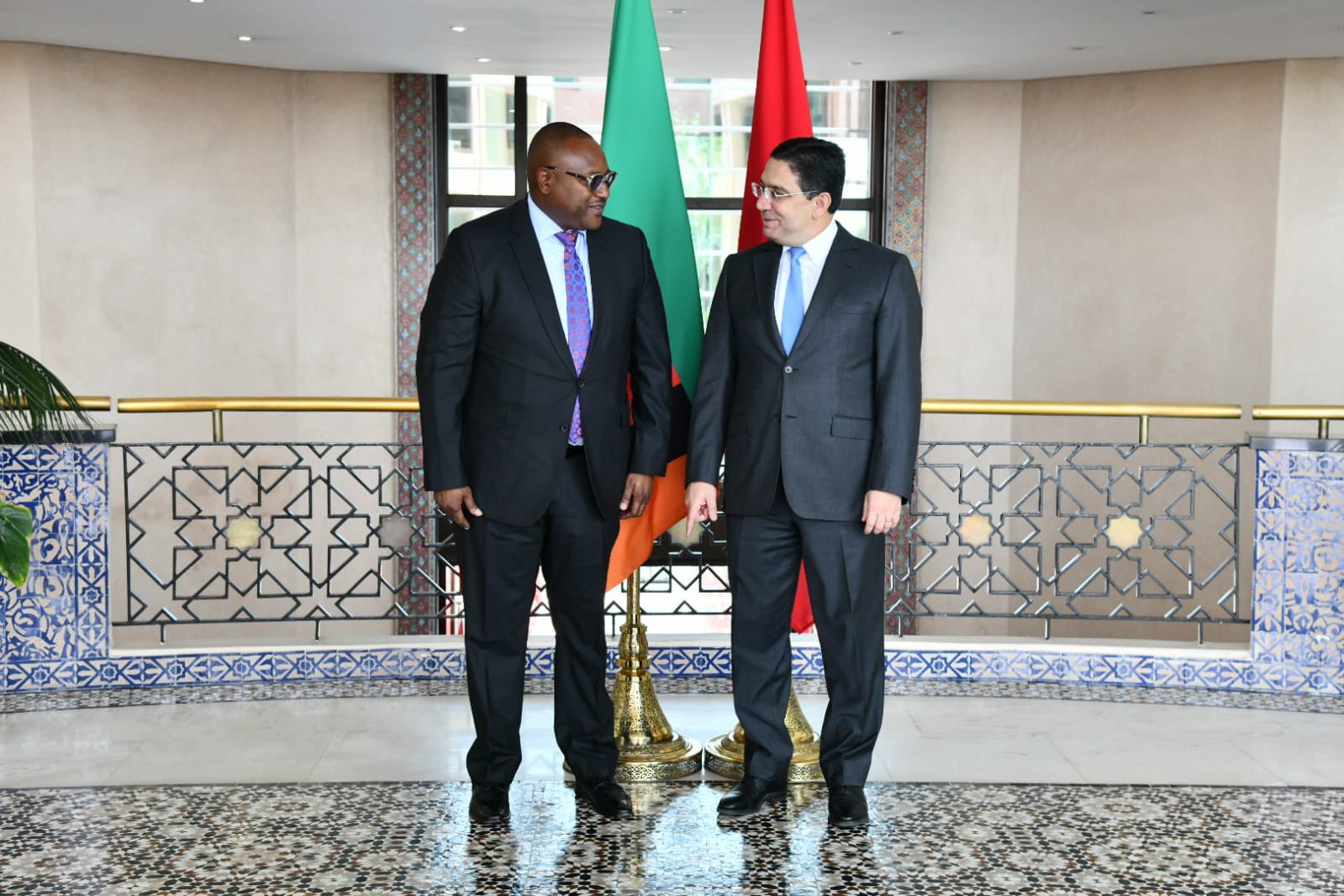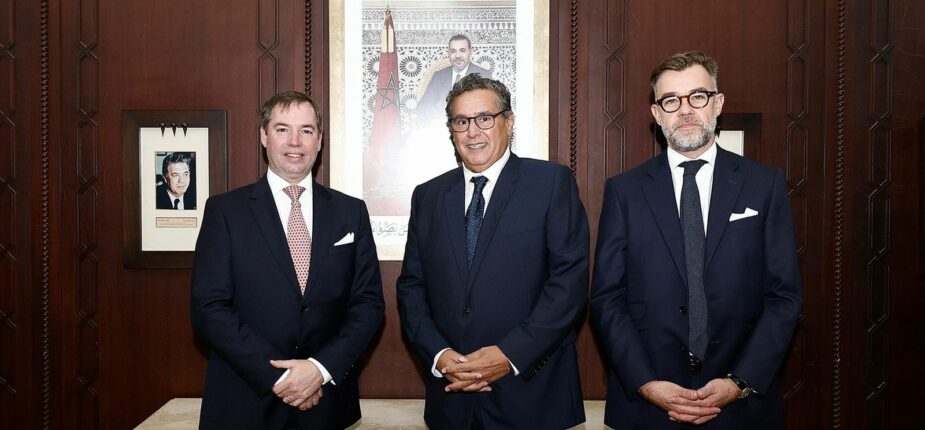Zambia reiterated its support for Morocco’s territorial integrity and sovereignty over all its territory, including the Moroccan Sahara, and underlined the relevance of the Moroccan Autonomy Plan as the “only credible, serious and realistic solution” to the Sahara issue.
This position was expressed in a Joint Communiqué issued Friday following talks in Rabat between visiting Zambian Minister of Justice, Acting Minister of Foreign Affairs and International Cooperation, Mulambo Haimbe, and Morocco’s Foreign Affairs Minister, Nasser Bourita.
In this Joint Communiqué, Haimbe reiterated his country’s “full support” to the Morocco-proposed Autonomy Plan for the Sahara, as the “only credible, serious and realistic solution.”
He also commended the efforts of the United Nations as the exclusive framework for reaching a realistic, practical, and lasting solution to the dispute over the Sahara.
For his part, Bourita welcomed the “positive value” of this decision, hailing the constructive development in relations between the two brotherly countries over the years by the opening, in October 2020, of the Embassy of Zambia in Rabat and its General Consulate in Laâyoune, and its participation in January 15th, 2021, in the Ministerial Conference in Support of the Autonomy Initiative under the Sovereignty of Morocco, at the invitation of Morocco and the United States of America.
As stated in the joint communiqué, the Zambian official welcomed the Atlantic Initiative, launched by King Mohammed VI, aimed at transforming this continental maritime space into a zone of peace, stability and development, and underlined the the opportunity offered by the Royal Initiative to facilitate the access of the Sahel States to the Atlantic Ocean that, in turn, will contribute to the region’s socio-economic development and ensure stability and prosperity in Africa.
He also welcomed the “enlightened” royal initiative, within the framework of the Atlantic African States Process to enhance cooperation by making the Atlantic African space as a geostrategic framework for intra-African cooperation and promoting peace, stability and shared prosperity.
Morocco and Zambia on the other hand expressed their shared desire to make bilateral partnership an exceptional model of intra-African cooperation, based on the values of solidarity, exchange and sharing.
The two officials welcomed the “strong ties of fraternity, solidarity, support, and understanding between Moroccan and Zambian people and the existing mutual respect between King Mohammed VI, and President Hakainde Hichilema, as well as the shared desire to make bilateral partnership an exceptional model of intra-African cooperation, based on the values of solidarity, exchange and sharing.
The two sides also expressed satisfaction at the steady pace of mutually beneficial cooperation between the two countries.
Both Ministers recalled the visit King Mohammed VI paid to Zambia in February 2017, and which gave a strong boost to Moroccan-Zambian relations, underlining that this royal visit was an opportunity for the two countries to further consolidate their political relations and to diversify and enrich their economic and commercial cooperation.
Bourita underlined that Morocco sincerely wishes to put in place a constructive and a deep political dialogue with Zambia, welcoming the convergence of visions of both sides on issues of common interest, marked by a common commitment to peace, stability, respect for sovereignty of States and democracy in Africa and in the world.
Both Ministers highlighted the important economic potential offered by the two countries, reaffirming their unwavering commitment to develop their mutually beneficial economic partnership, and to increase two-way trade to a satisfactory level, to create a more enabling environment for mutual investment, and to encourage the business communities of both countries to fully explore and take advantage of the opportunities offered by their growing markets and expanding infrastructure.
The two sides agreed, in this connection, to convene, in Lâayoune, during the last quarter of 2024, the first session of the Joint Permanent Commission for Cooperation that will discuss, among other sectors, mining-critical minerals and battery electric vehicle value chain; agriculture, food security, horticulture and irrigation, as Morocco is the leading producer of Phosphate fertilizers and has major programs with a number of African countries; intelligence and security cooperation; trade calling for the creation of Trade alliances within the context of the AU Continental Free Trade Agreement (CFTA); education and academic and professional training.
At the multilateral level, they called for the development of a high-level joint political dialogue and stressed the importance of intensifying their contacts with the aim of further harmonizing their positions within regional, continental, multilateral and international institutions, such as the African Union (AU) and the United Nations (UN).



